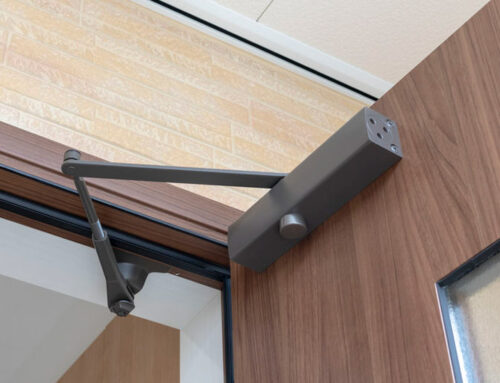When your employees are sick, your whole business suffers. It starts with just one employee with the sniffles. Then it seems like everyone has caught it, and the productivity of your business sharply declines. You can protect your employees from the spread of illness throughout the workplace. These steps can both protect your business and just make a healthier space for your staff. Here are five smart ways to keep your employees healthy, whether there is a pandemic going on or not.
1. Review Your PTO Policy
Your paid time off policy is probably the number one factor in whether your sick employee gets a few other people sick, or whether they recover at home. Some employees will indeed abuse paid time off, but that doesn’t mean that making the policy more stringent is in your business’s best interest. Allowing your responsible employees, the ability to use PTO as they see fit can help reduce the spread of any illness among your staff.
Here are a few facets of your PTO policy that might need a second look:
- Don’t require sick notes: Some organizations require sick notes for even a single-day absence. This demand can keep unhealthy people at work. Doctors can charge high fees for sick notes, and employees will recover from minor illnesses slower if they need to spend their recovery day waiting in a doctor’s office. Trust your employees not to get notes unless they have prolonged absences, and they’ll be back to work faster and happier.
- Re-consider disciplinary action: Of course, you need to maintain the right to discipline those who abuse the system. However, applying strict measures right away discourages even responsible employees from taking time off. Start with coaching as a discipline, and you can maintain a more positive work environment.
- Carrying over: Every business is a little different, but most can benefit from not allowing their PTO days to carry over. This policy encourages employees to use their sick days for regular, minor illnesses like cases of flu and colds, instead of saving them to use them all like a vacation.
- Regular PTO: Give employees regular PTO if they’ll use the time to better their health. For example, give them a half-day off to go get their flu shot or one yearly day off to get a physical.
2. Install Automatic Doors and Other Touchless Entry
Even with a great PTO policy, some employees will still come in to work when sick. They may start spreading the flu or cold through the office before they even know they have it. That’s why it’s critical to try to limit the amount that people touch shared surfaces, such as doorknobs. Automatic doors can help reduce the spread of germs, especially in workplaces that are open to the general public, and therefore could have hundreds of people touching the door per day.
Do you use an access control system? Not to worry, there are touchless entry options that still offer the security you need. For example, the Open Path system offers triple redundancy, without you or your staff needing to touch the access panel at all.
3. Consider Your Cleaning Schedule and Access to Supplies
How often is your office space cleaned? Few employees are willing to clean their office space, the communal kitchen, or the bathroom as often as they would clean their homes. And, because more people use your space, it needs to be cleaned more often to stop the spread of germs. Most businesses find that having a professional company clean their office is the most efficient way to do it. However, if you only have the professionals in once a month, you may be harboring a lot of germs. Cleaning once a week is a minimum for most properties, and daily cleaning is better for kitchens and bathrooms.
Some employees will clean their space if they have easy access to the right supplies. Be sure that you have multi-surface cleaners and rags or paper towels in an unlocked supply closet.
There is another cleaning access issue in the bathroom. You can strongly encourage proper handwashing by giving your employees reliable access to paper towels to dry their hands or blow-dryers that really work. If you use paper towels, then have a dedicated staff member check the bathroom’s supply at least once a week. If you’re concerned about the environmental impact of using paper towels, using hand towels that you can run through a washing machine may be a better option for you.
One area that is very easy to overlook, especially when it comes to employee health and wellbeing, is your indoor air quality. Dirty air ducts can significantly impact health by allowing allergens, airborne bacteria, and other VOCs to freely spread throughout your property. Scheduling regular air duct cleaning services can have a quick but noticeable impact on overall health and energy levels, especially for those with allergies, compromised immune systems, and respiratory issues.
Finally, giving your employees the means to clean up is great, but it’s even better to help them keep it clean in the first place. One of the best ways to do that is to set up an office recycling program. If there is a clear way for employees to responsibly dispose of all sorts of debris, then it’s less likely that the garbage will pile up, which makes it easier to take care of basic cleaning maintenance as well.
4. Fitness Benefits & Healthy Food
Stopping the spread of germs is helpful, but it can be even more helpful to have healthy staff that are less likely to fall ill even when the flu is going around. You actually can have a significant impact on your employee’s health if you offer them fitness benefits and focus on providing healthy foods.
For starters, ensure that your office benefit plan has discounts or even free gym access for your employees. Or, give employees a stipend that they can use on home exercise equipment or sports leagues. This will boost morale as well as boost health.
Secondly, focus on providing healthy food for your employees. Fill your staff kitchen with fruit and healthy snack options like oatmeal and bran. When it comes to work events, especially holiday events, don’t just offer cookies and cake. Hold a healthy potluck and encourage employees to bring their favorite healthy dish to share.
5. Allow Flex Work
Can some of your employees complete their work from home? You may have had to allow them to work from home during the Covid-19 pandemic. Now that you have the systems to allow working from home set up, allowing employees the occasional work-from-home day can seriously help them stay healthy. We’ve all had mornings where we wake up feeling under the weather but aren’t sure if it merits staying home or not. Or, we really need to complete a project, so we head into work even when we know we’re sick, or when we haven’t quite recovered from an illness. Allowing your employees to work from home on these days can prevent them from spreading illnesses to their co-workers.
Keeping your employees healthy won’t just reduce their absences. Healthy employees are also more productive, happy, and enriching to those around them.







